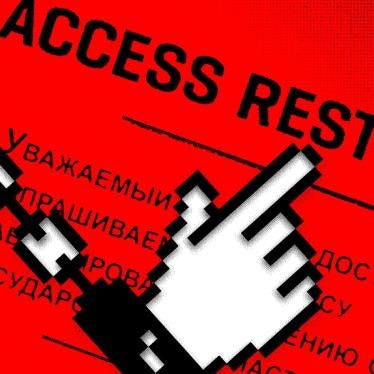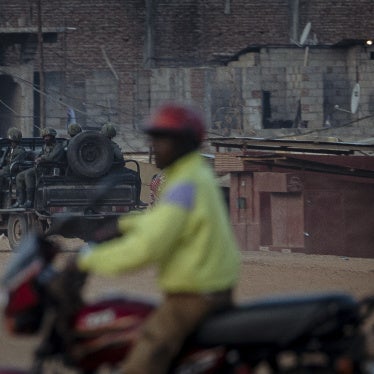“It’s madness.” Then a sigh. Most Ukrainians, regardless of their political preferences, had little more to add when I asked them about the situation in the country.
It is indeed madness. In broad daylight, Russia annexed a significant chunk of one of the largest countries in Europe, with the help of hastily appointed loyal officials and “little green men” – fully armed soldiers driving around in unmarked armoured personnel carriers and vehemently denying that they were Russian servicemen. Encouraged by the annexation of Crimea and fuelled by incessant Russian propaganda about the imminent threat to Russian-speaking population from the Ukrainian “fascists'', anti-Kiev insurgents in eastern Ukraine staged their own revolt.
Masked, often drunk, armed first with baseball bats and then increasingly with Kalashnikovs and even portable air-defence systems, they took over administrative buildings, set up checkpoints, and staged a “referendum'', which delivered almost unanimous support for the independent “Donetsk People’s Republic.”
Russia initially voiced its support for the insurgents, but then backed off. By that time, however, it was too late: the men with Kalashnikovs who seized power had no desire to go back to their everyday lives in this impoverished region, and neither did the crowds of unarmed residents who supported them. The Ukrainian security services thus faced a very difficult situation: before they could get to the armed insurgents, they would have to deal with their own unarmed citizens, including women and the elderly.
Inevitably in this climate, human rights abuses thrived. Every day during my stay in Ukraine, I received reports of abductions, attacks, threats, and beatings of journalists, activists, and local officials opposed to the self-proclaimed Donetsk authorities. I interviewed men and women covered in bruises, with broken ribs, and concussions after they spent a few days in the hands of the new self-proclaimed authorities. I spoke to relatives of those who have been abducted and “disappeared” without a trace. I talked to journalists and activists who had to leave eastern Ukraine after receiving explicit death threats.
Aleksandr Vovk, a miner from the town of Novogradovka in the Donetsk region, could barely open his eyes when I spoke to him, his face was so badly swollen from the beatings. He said a group of armed men in balaclavas abducted him and five other men, three of them members of the town council, and took them to the headquarters of the “Donetsk People’s Republic.”
“They brought us up the stairs, pushed us on the floor and started beating,” he told me. “I was trying to cover my head, but they kept kicking me on the head and face with their feet. They were in masks, didn’t introduce themselves, and were accusing me of being a “Banderovets [pro-Kiev].” Nonetheless, Vovk and his colleagues considered themselves lucky – the abductors eventually released them. Dozens of other captives remain missing.
Residents who do not support the self-proclaimed authorities feel desperate and helpless, as nobody seems able to stop the abusers. Ukrainian authorities have almost no control on the ground in these areas, and so struggle to protect the people. Russia undoubtedly has influence over the anti-Kiev insurgents, but rather than trying to encourage respect for rights, it prefers to blast rhetoric about the climate of lawlessness and instability in the region.
The Ukrainian government also has started to build its own record of violations. For example, in one of the cases I investigated, they used live ammunition without apparent justification to quell unarmed crowds, causing deaths and injuries. The authorities also detained several journalists working for Russian media outlets whose coverage of the events in Ukraine they did not like. Other Russian journalists have been denied entry to the country. Ukraine, of course, has a right to control who enters the country, but keeping someone out on grounds such as nationality or political opinion is hardly consistent with its international obligations and the image it is trying to project to the West.
The Ukrainian crisis has demonstrated, with painful clarity, the limitations of Western sway with Russia and its relations with former Soviet states. Australia, along with the European Union and the United States, has issued public condemnations and adopted sanctions against Russian officials, but they have not been able to persuade Russia to use its influence on the anti-Kiev forces. However, a broader international condemnation and joint action with countries that Russia still sees as its close allies – including India, South Africa, and Brazil – could send a message that Russia would not ignore.
In the meantime, Western governments, including Australia, should use their influence where it can have a tangible impact – in Ukraine. It is imperative Ukraine’s counterparts do not overlook the government’s deteriorating human rights record, and to impress on the Ukrainian authorities the need to live up to the international human rights norms and principles. This would be an important first step in bringing Ukrainian society from madness to normality.
Anna Neistat is associate program director at Human Rights Watch and features in the documentary E Team, which premieres at the Sydney Film Festival on Thursday June 5.








